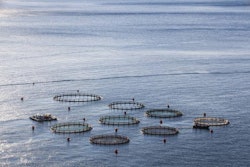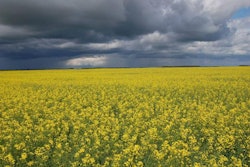Resources include information for animal food producers
As Hurricane Isaias approaches Puerto Rico and the Southeastern United States, the U.S. Food and Drug Administration’s Center for Veterinary Medicine reminds those who may be affected about resources available for animal food producers who may be harvesting, mixing, storing or distributing grains and other foods for animals.
The FDA reminds harvesters that crops harvested from flooded fields are often unacceptable because of contamination. Flood waters, which are different from pooled rain water, may contain sewage, pathogenic organisms, pesticides, chemical wastes, or other toxic substances. Mold growth is another serious concern for flood impacted crops intended for use in animal food. Some molds produce mycotoxins, which are toxic to certain animals and people.
For more information, see Crops Harvested from Flooded Fields Intended for Animal Food: Questions and Answers.
Sometimes, crops that have been harvested and then subsequently deemed unsuitable for human use can be salvaged for animal food. The FDA will work with producers to consider requests to recondition an adulterated crop into animal food on a case-by-case basis. FDA’s compliance guide (CPG 675.200) provides a step-by-step process for reconditioning requests. Those requests should be directed to the following individuals in the relevant FDA field office.
For contamination events that occur in Puerto Rico:
- Ramon Hernandez, 787-729-8588
- Marianela Aponte, 787-729-8501
For contamination events occurring in Florida:
- Elizabeth Waltrip, 407-475-4740
- Nelson Venerio, 407-475-4729
For contamination events occurring in Georgia, South Carolina, or North Carolina:
- Ingrid Zambrana, 404-253-1284
- Wilbur Huggins, 404-253-2235
Additionally, your state’s Department of Agriculture may have state-specific requirements regarding any attempt to clean, process, test, and sell/use crops in animal food. FDA will also continue working with USDA, state partners, and associations on broader questions that may arise about crops for animal food.
For more information:
- Resources for Food Producers in Areas Flooded from Hurricane Isaias
- General Information on Evaluating the Safety of Food and Animal Food Crops Exposed to Flood Waters
- CPG Sec. 683.100 Action Levels for Aflatoxins in Animal Feeds
- Guidance for Industry: Fumonisin Levels in Human Foods and Animal Feeds Final Guidance
- Guidance for Industry and FDA: Advisory Levels for Deoxynivalenol (DON) in Finished Wheat Products for Human Consumption and Grains and Grain By-Products used for Animal Feed
- CPG Sec. 575.100 Pesticide Residues in Food and Feed – Enforcement Criteria
- CPG 675.200 Diversion of Adulterated Food to Acceptable Animal Feed Use
Issued by FDA Center for Veterinary Medicine.
For questions, Contact CVM.









